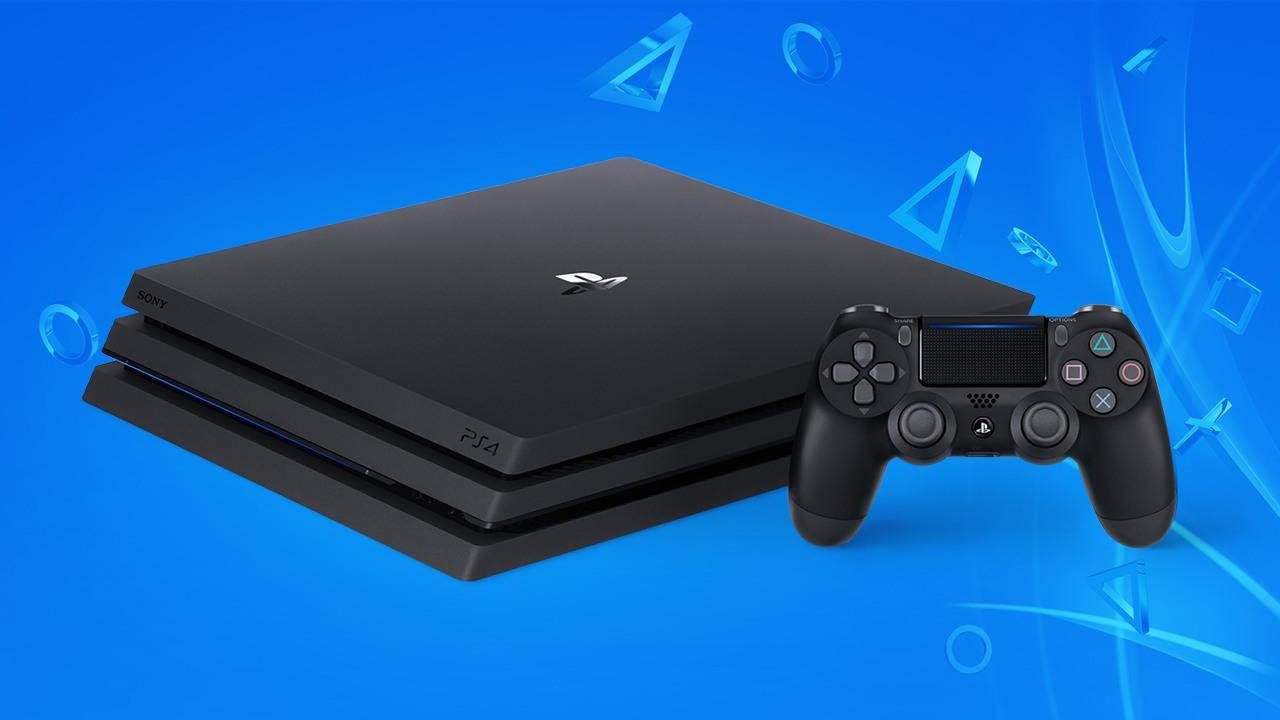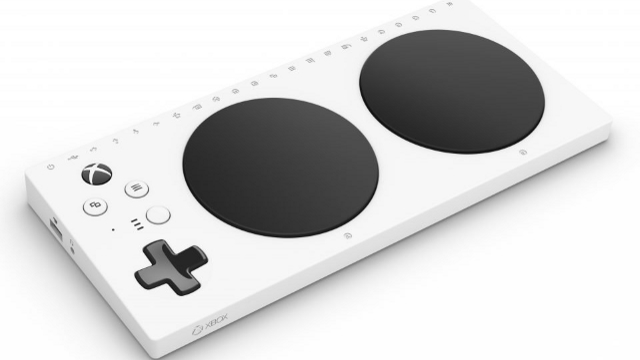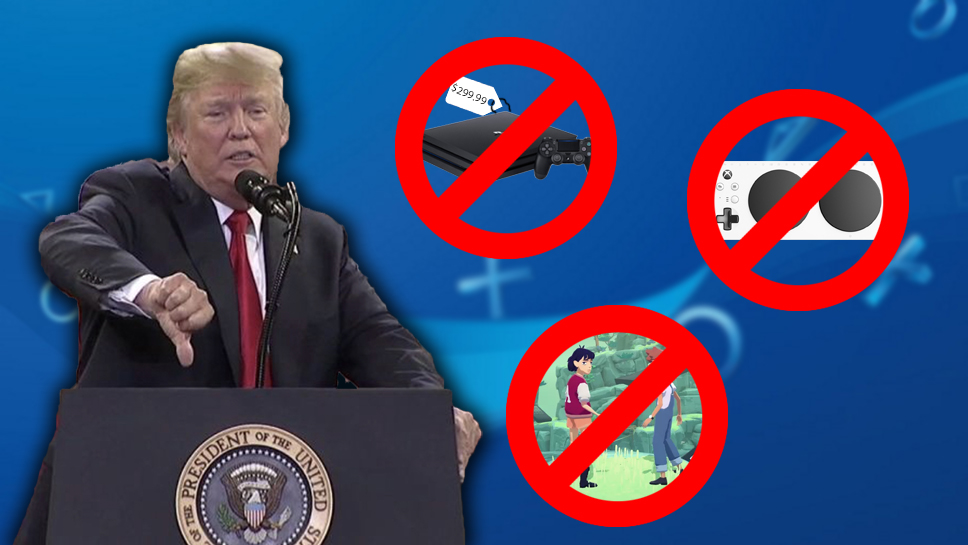The Trump China tariffs spell bad news for video game fans all over the world. Sony, Microsoft, and Nintendo have all warned about the negative impact the taxes could have on publishers, developers, consumers, and the medium as a whole. The following is an in-depth look at everything that could be influenced by the duties should they be signed into action soon.
Trump China Tariffs and Gaming | Console prices

Sony CFO Hiroki Totoki stated during an earnings call earlier this week that prices of its PS4 systems could rise if Trump’s proposed tariffs go into effect. This comes a little over a month after the company — alongside longtime rivals Microsoft and Nintendo — submitted a letter to the Office of the United States Trade Representative explaining how over 96% of consoles were imported from China in 2018.
Given how gaming hardware is manufactured under “tight margin conditions,” the slightest change in production could negativity impact the entire process. If complex supply systems in China are to be disrupted, each firm would have to carefully vet suppliers in other countries and pass on the new costs of labor down to the end user.
PlayStation system architect Mark Cerny stated this past April that Sony’s next generation console will boast an “advanced feature set,” indicating that it may cost than the PS4 did at launch. Microsoft’s Project Scarlett will likely have a similar price point, as the company claims that it will set a “new bar for console power, speed and performance.” The Trump China tariffs could force the firms to increase their target launch prices, as anything low would result in a significant loss per unit.
Though Sony, Microsoft, and Nintendo have reportedly already started searching for cheap manufacturing sites outside of China, it’s hard to determine if a relocation at this time is enough to keep future console prices reasonable. The next hardware generation is set to arrive next year, after all.
Trump China Tariffs and Gaming | Software and service prices

Consumers learned that Sony purposefully sold the PS4 at a loss of around $60 per unit back in 2013 knowing that it would recoup sales with software and subscription services. If the company and its rivals decide to competitively price their next generation hardware despite the Trump China tariffs next year, they may opt to mandate an increase in software and service prices in order to offset the increased manufacturing costs.
In other words, while the systems will maintain the target launch prices that Sony and Microsoft have presumably already set, consumers may be paying more in the long run, especially if they purchase games often or use a variety of services on each platform. A balance needs to be met somewhere.
Trump China Tariffs and Gaming | Indie developers

Hardware manufacturers may also look into raising the cost of development kits for small and mid-size studios in order to offset losses. When the PS4 launched in 2013, the price of these kits was a hefty $2,500. A higher upfront cost may cause concern for solo creatives working on shoestring budgets or 10-person teams. Of course, no title is guaranteed to be financially successful and there’s always a chance that developers may not see any return on investment.
The increased costs of production may outright discourage studios from creating software for consoles, as the risk may outweigh the reward from their perspective. Sony, Microsoft, and Nintendo would be wise not to alter development kit prices too significantly, as it could have a detrimental effect on their brand image and system ecosystems. This being said, the Trump China tariffs may be severe enough to force the companies to change their pricing strategies across the board.
Aside from this, poor system sales would force major manufacturers to further limit the amount of indie titles they market and/or distribute. Ambitious games like Transistor and No Man’s Sky may still release throughout the next console generation, but they may not be successful without a major company’s marketing efforts and great sales.
Trump China Tariffs and Gaming | Innovation

Video games aren’t just about killing bad guys. The Trump China tariffs could result in a tremendous loss of funding for innovative technology that benefits such entities as schools, medical institutions, and government agencies. Microsoft’s Azure Kinect, for instance, is currently being used to monitor rehabilitation at physical therapy clinics. The PS3’s Cell Broadband Engine plays a significant role in powering Stanford University’s Folding@Home supercomputer, the likes of which is capable of simulating protein folding for disease research.
Within the industry, strides have been made for more inclusion through devices like the Xbox Adaptive Controller. As its name suggests, the technology gives people with limited mobility the chance to enjoy video games with their friends thanks to a variety of specially designed buttons, switches, and joysticks. Other innovations include Sony’s PSVR and Nintendo’s Wii Remote, both of which have expanded the market to include people who don’t typically play games often.
Trump China Tariffs and Gaming | The consumer

According to a report by the Entertainment Software Association last year, 60% of Americans play video games daily. Should hardware or software prices increase, the medium will be relegated only to those few who can afford it — making it more of a luxury pastime than it already is. There would be a significant barrier of entry to enjoy whatever the next generation of consoles has to offer.
No one out there wants to pay $599 for a gaming machine ever again. Here’s hoping that consumers won’t be paying exorbitant amounts of money for the next generation of consoles and that trade relations between the United States and China ameliorate in the near future. No one wins in a trade war.







